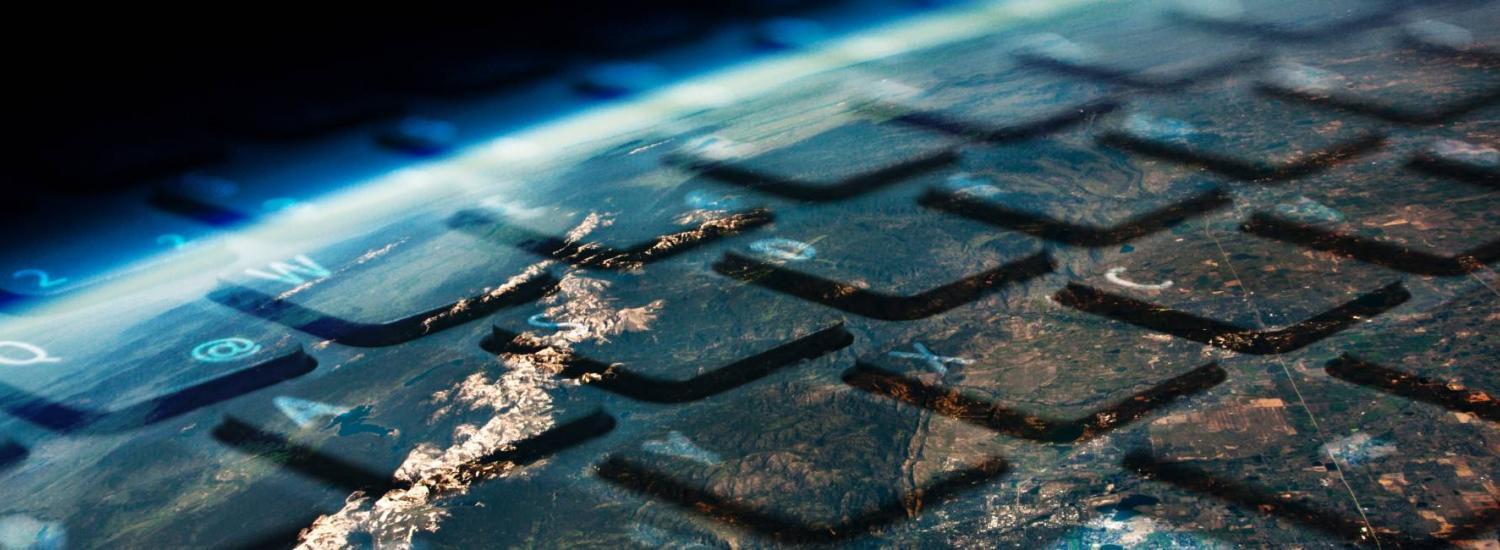Training the Next Wave of Earth Data Scientists
In the Era of big data, Earth Lab at CU Boulder launches new professional certificate focused on Earth data analytics

CIRES’ Earth Lab now boasts one of the only professional certificate programs in the nation to focus specifically on Earth data science applications. The year-long, three-course “Earth Data Analytics - Foundations” online certificate, which launches at CU Boulder in August 2018, provides students with critical skills in Earth science, data analytics, and interdisciplinary collaboration—training the next generation of researchers to succeed in today’s world of big data.
Although the certificate is a fresh addition, educational efforts are not new for Earth Lab. Leah Wasser, Earth Analytics Education Initiative director, has taught a number of data analytics courses and workshops through CU Boulder, focusing on using scientific programming to work with large datasets.
“Earth Analytics gave me direct exposure and hands on experience in using remote sensing data to learn about changes to our environment,” said Bogdan Lita, a Senior Scientist local in Boulder who took the Fall 2018 Earth Analytics course taught by Wasser. “I had no exposure to GIS or other software but I learned how R can be used to process, analyze, and present data.”
Earth Lab’s Mollie Buckland works on earth analytics research related to wildfires. Photo: Earth Lab
Earth scientists must work with the exploding data feed from satellite, drone, ground and aquatic instrumentation, human-made measurements and even social media sources. By teaching students how to efficiently work with and use this massive flow of data, the “Earth Data Analytics - Foundations” certificate equips professionals with the tools needed to start or advance a career in this data-intensive discipline.
The certificate program consists of three sequential courses making up nine credit hours that run from August to May. The courses (Earth Analytics Data Science Bootcamp, Earth Analytics, and Earth Analytics Applications) cover topics including automating data workflows using scientific programming and other tools to participating in complex, real-world projects with peers—to build a strong foundation in data analytics. Students can complete coursework either in person or online, and can apply the credits toward a professional master’s degree in Earth Data Analytics—set to launch in the coming years.
The Earth Data Analytics - Foundations professional certificate is geared towards both professionals and recent college graduates who want to boost their career with data skills. The program requires an undergraduate degree from an accredited university. Some professional work experience is suggested but not required.
Graduates of the program could take their newly acquired skills and seek potential career paths like: data scientist, geospatial analyst, GIS technician, or remote sensing scientist—working with geospatial big data for organizations like Google, DigitalGlobe, the USGS, Lockheed Martin, and NOAA.
Earth Lab’s Zach Schira presents his research on teaching computers to recognize each individual tree in an aerial image of a forest. Photo: Earth Lab
For example, Earth Analytics experts could work for companies that use satellite imagery to make agricultural decisions: like when to irrigate and harvest crops. In this type of work, knowledge of programming languages like R and Python to analyze remote sensing data is just as important as agricultural and ecological skill sets.
Earth Lab joined CIRES last year, bringing with it a new platform for accelerated scientific discovery. And now with this professional certificate, it also brings a new wave of education resources—to prepare a new cohort of researchers to thrive in today’s data-rich academic arena.
“CU Boulder is a leader in global environmental change education and research,” said Jennifer Balch, director of Earth Lab and CU professor of geography. “This program builds on that strength and is one of the first in the country to blend data science with Earth systems science for professional students.”
The rolling deadline to apply for “Earth Data Analytics - Foundations” this year is May 15, 2018. Applications may be accepted after this date but will be given priority if submitted by May 15. Visit the program’s website for details and instructions.